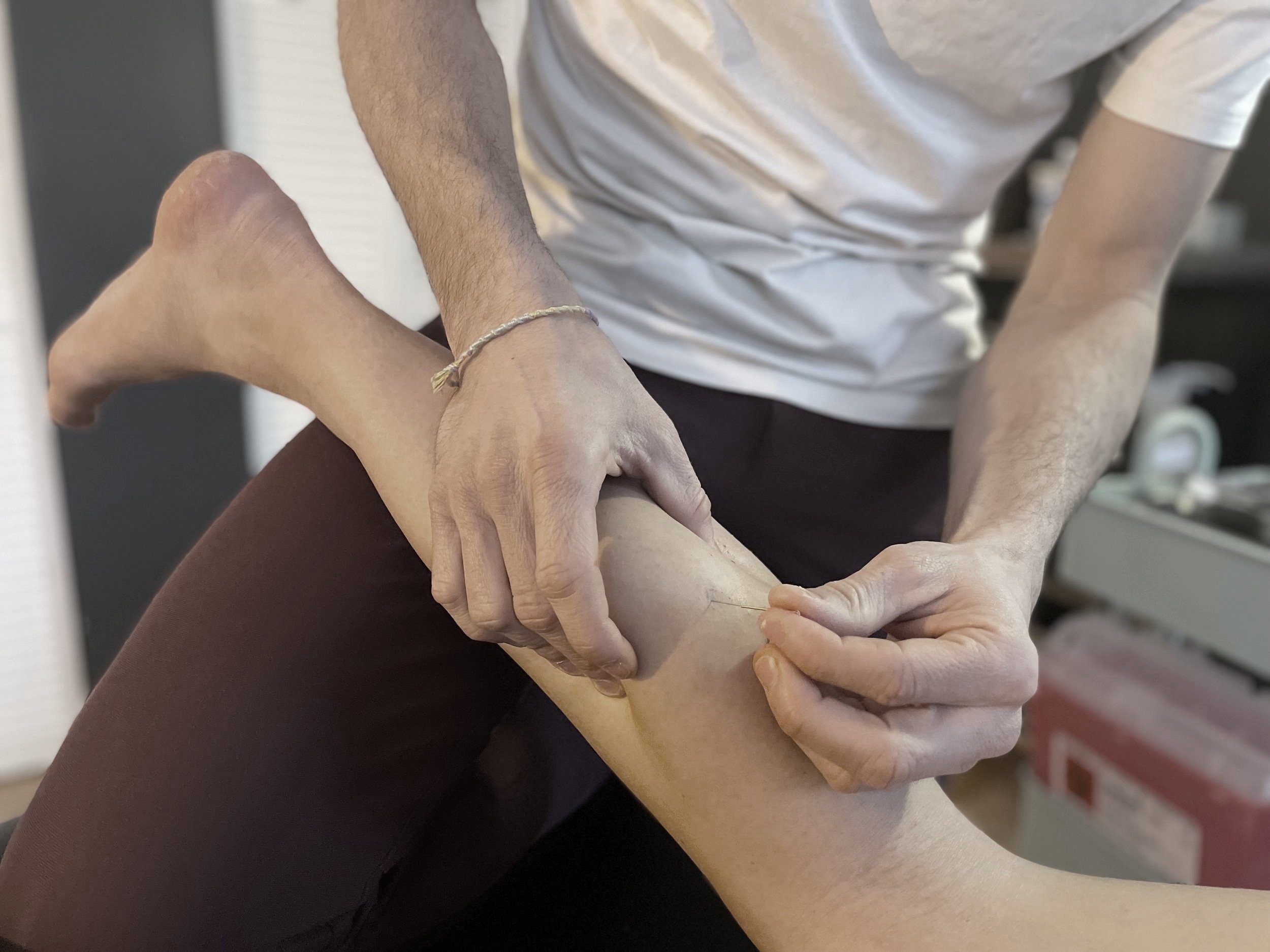
DRY NEEDLING
Sometimes known as IMS/Gunn, dry needling can be used by your physiotherapist, if they have completed the appropriate training. Thankfully, Endura Physio has you covered. Get your physiotherapy assessment and treatment using dry needling in the West Island of Montreal today.
What is Dry Needling
Dry needling, is a technique that utilizes acupuncture-like needles to release tension points, typically known as trigger points in the body. Dry needling can help in relieving pain, restoring range of motion and improving overall function. It is important to note that although this can bring long term relief, it is important to consider this as one small part in a rehabilitation journey. Dry needling must be supplemented with a proper rehab plan to properly optimize your recovery. It is important to consider that dry needling can be accompanied by soreness post treatment.
Dry Needling vs. Acupuncture
In Quebec all acupuncturists are licensed to insert thin needles under the skin. However, only physiotherapists having completed a rigorous training through the Ordre Professionnel de la Physiothérapie du Québec may do so.
Physiotherapy Approach: Licensed physiotherapists will utilize needles in the hopes of reducing muscle tension or “knots”, known as trigger points. In some cases, the needling can influence swelling and trigger a favorable inflammatory response. However, all needles are inserted locally, meaning at or near the site of pain. They are officially referred to as PPAS, or “punctures physiothérapiques à l’aiguille sèche” in the province of Quebec.
Acupuncture approach: Acupuncture is deeply rooted in traditional Chinese medicine, which typically utilizes acupuncture to balance energy in the body. Although an acupuncturist may use the needle as a physiotherapist can, their approach is typically different. The use of chinese meridians is used by some therapists, whereas others may base their approach on point charts to guide their treatments. In all cases, a global energetic evaluation is first completed to guide treatment.
If you suffer from the following conditions, dry needling could help in some cases. Your physiotherapist will first assess, diagnose and propose a treatment plan. Dry needling culd be a part of this plan. Keep in mind that physiotherapists must obtain consent before any dry needling, therefore if you have a fear of needles or prefer treating your pains without dry needling, that is perfectly ok.
Low back pain
Neck pain
Thoracic pain
Tendinopathy
Myofascial syndrome (aka muscle tension)
Headaches
Postural pain
However, keep in mind that if you are less than 14 years old, pregnant, have an active infection, vascualr conditions or hemophilic, dry needling is contraindicated.
How will I feel after dry needling?
You may leave your session feeling very good, and with less pain than when you walked in. However, it is also perfectly normal to feel some soreness in the treated areas for up to 48 hours post treatment. In these cases, heat may help with this discomfort.
Is dry needling for me?
Is dry needling covered by insurance?
Yes. If your insurance covers physiotherapy, dry needling will be covereda as it is considered a physiotherapy session. If, however, you do not have coverage for physiotherapy, it will not be covered.
Is dry needling more expensive?
At Endura physio, we do not charge more for dry needling. If we determine dry needling would help your condition, no extra fees will be charged.

